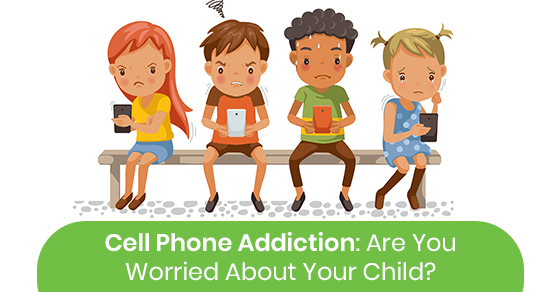Is your child in bed texting into the early hours of the morning? Are they bringing their phone to the dinner table and checking messages during family meals? Are they gaming with friends, Instagramming their day, and watching YouTube videos on weekends to pass the time? Those activities may be impacting their creativity, memory, sleep, and health.
According to pediatrician Michael Rich, director of the Center on Media and Child Health at Boston’s Children’s Hospital, our brains are always generating neural connections and pruning away the ones we use less, and those changes are being made in response to the artificial stimulation of digital media.
Games and social media appear to activate reward systems in the brain, which makes them addictive and preferable to less stimulating activities. That can lead to obsessive behavior that overrides a student’s underdeveloped system of self-control. Students with ADHD and anxiety disorders are particularly vulnerable.
Rich notes that when students invest time in online interactions instead of using downtime to play, create, and daydream, the brain loses out. “Boredom is the space in which creativity and imagination happen,” he says.
The blue light emitted from phones and laptops can also interfere with sleep, as it suppresses the release of melatonin and can interrupt and impede the deep sleep we need to repair and regenerate our bodies, shore up our immune system, support learning, and store memories.
When to Get Help
Rich says that parents should be concerned when a student’s life or health is becoming impaired.
“The thing[s] that we see are sleep problems, either sleep deprivation and/or sleep disruption of various kinds. We are seeing academic failure. We are seeing social problems. We are seeing increases in anxiety and depression that have a relationship to but are not necessarily solely caused by problematic interactive use,” he says.
An important sign is when a child begins giving up the activities they used to love—such as sports, social events, or outdoor activities—because they prefer to stay at home in front of a screen.
Quick Tips for Better Screen Health
Research led by Rich is exploring the impact of digital technology on the physical, mental, and social well-being of youth. He urges a balanced approach to screen time, encourages parents to help their children identify and manage their priorities instead of policing their online activities, and suggests creating device-free family zones. He offers these tips:
- Beware of digital media distraction. Half of all kids and three-quarters of parents feel the other is distracted when talking to each other.
- Have regular sit-down, screen-free meals with your children.
- Put down your device. Be present with others. Observe the world around you. Let your mind wander.
- Avoid blue light-emitting screen use before bedtime.
- Play online games with your children rather than forbidding them. Learn how to play from them, and as you play, help them think about what they’re seeing and doing on screen.
- Help your children plan how to spend their time, focusing on important and favorite activities to avoid sliding into the screen abyss.
Evoke Learning offers coaching and mentoring programs that can help students set goals, improve self-esteem and self-regulation, and manage time effectively. Contact us to learn more.
Sources
Bradley Ruder, D. (n.d.). Screen Time and the Brain. Retrieved July 25, 2019, from https://neuro.hms.harvard.edu/harvard-mahoney-neuroscience-institute/brain-newsletter/and-brain-series/screen-time-and-brain
Reddy, S. (2019, June 17). Does Your Kid Spend Too Much Time Online? Here’s When to Worry. Retrieved July 25, 2019, from https://www.wsj.com/articles/does-your-kid-spend-too-much-time-online-heres-when-to-worry-11560763804
Light-Emitting E-Readers Before Bedtime Can Adversely Impact Sleep. (2014, December 22). Retrieved July 25, 2019, from https://www.brighamandwomens.org/about-bwh/newsroom/press-releases-detail?id=1962
')}


